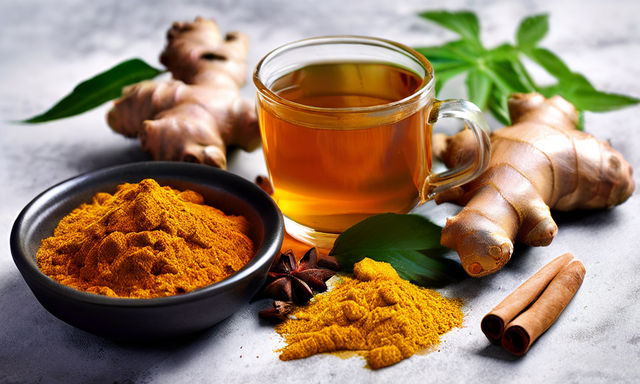Acid Reflux: Foods to Avoid Video
Acid reflux, also known as gastroesophageal reflux disease (GERD), affects millions of people worldwide. This digestive disorder causes stomach acid to flow back into the esophagus, leading to discomfort and potential long-term health issues. Diet plays a crucial role in managing acid reflux symptoms. Certain foods can exacerbate symptoms by increasing stomach acid production or relaxing the lower esophageal sphincter (LES), which can allow acid to escape. This article explores the foods most commonly known to aggravate acid reflux symptoms and offers tips on how to modify your diet for better digestive health.
What is Acid Reflux?
Acid reflux occurs when the lower esophageal sphincter (LES), a valve that lets food into the stomach but is supposed to prevent stomach acids from coming back up, weakens or relaxes inappropriately. This allows the stomach's acidic contents to flow back into the esophagus, causing irritation and discomfort. Factors that can exacerbate this include overeating, obesity, lying down soon after eating, and consuming certain types of foods.
Foods to Avoid for Acid Reflux Sufferers
Certain foods and beverages can aggravate acid reflux symptoms by increasing stomach acid production, relaxing the LES, or causing bloating and pressure that pushes stomach contents back up the esophagus. Here are common culprits and their more reflux-friendly alternatives:
1. High-Fat Foods
- - Examples: Fried foods, fatty cuts of meat, butter, and high-fat dairy products.
- - Why to avoid: Fatty foods can delay stomach emptying, increasing the likelihood of reflux.
- - Substitute: Opt for lean meats like turkey, chicken breast, and fish. Cook using methods that require less oil, such as grilling, steaming, or baking. Choose low-fat or fat-free dairy products.
2. Citrus Fruits
- - Examples: Oranges, lemons, limes, and grapefruit.
- - Why to avoid: Citrus fruits are highly acidic and can exacerbate symptoms of acid reflux.
- - Substitute: Non-citrus fruits like melons, bananas, apples, and pears are less likely to trigger reflux symptoms and provide you with essential nutrients without the risk.
3. Spicy Foods
- - Why to avoid: Spicy foods can irritate the esophagus and worsen acid reflux symptoms.
- - Substitute: Use herbs like basil, thyme, and tarragon to flavor your meals without causing discomfort.
4. Garlic and Onions
- - Why to avoid: These can often trigger acid reflux in many people, likely due to their potent flavors and high fermentable fiber content.
- - Substitute: For flavoring, use herbs or a small amount of powdered garlic or onions, which might be less irritating.
5. Chocolate
- - Why to avoid: Chocolate contains caffeine and other stimulants like theobromine, which cause relaxation of the LES.
- - Substitute: If you crave something sweet, go for a small amount of dark chocolate with a higher cocoa content or snack on non-citrus fruits dipped in a little bit of honey.
6. Caffeinated Beverages
- - Examples: Coffee, tea, and some soft drinks.
- - Why to avoid: Caffeine can relax the LES, allowing acid to escape the stomach and irritate the esophagus.
- - Substitute: Herbal teas like chamomile or ginger tea are soothing alternatives. Still or alkaline water can also be a good option.
7. Alcoholic Beverages
- - Why to avoid: Alcohol can relax the LES and increase stomach acid production, both of which contribute to the symptoms of acid reflux.
- - Substitutes: If alcohol is a trigger, it’s best to avoid it altogether. However, non-alcoholic beers and mocktails can be good alternatives.
8. Mint
- - Why to avoid: Mint and products containing mint oil (such as peppermint and spearmint) can relax the LES, exacerbating acid reflux.
- - Substitute: Herbs like parsley, coriander, or basil can freshen your breath and add flavor without causing acid reflux.
9. Tomatoes and Tomato-Based Products
- - Why to avoid: Tomatoes and their derivatives are acidic and can sometimes trigger acid reflux symptoms.
- - Substitute: For a similar texture without the acidity, try sauces made from roasted red peppers or butternut squash.
10. Carbonated Beverages
- - Why to Avoid: The bubbles in carbonated drinks can expand inside the stomach, increasing pressure and encouraging stomach acid to back up.
- - Substitute: Non-carbonated beverages are best. Try infusing water with fruits like strawberries or oranges for flavor without the fizz.

Dietary Tips for Managing Acid Reflux
- 1. Eat Smaller Meals: Large meals can put pressure on the LES, increasing the risk of acid leakage. Try eating smaller, more frequent meals throughout the day.
- 2. Avoid Eating Before Bed: Eating close to bedtime can trigger acid reflux symptoms at night. Aim to finish your last meal at least three hours before going to sleep.
- 3. Maintain a Healthy Weight: Excess weight can increase abdominal pressure and exacerbate reflux symptoms. Losing weight can significantly improve or even eliminate symptoms.
- 4. Elevate the Head of Your Bed: Keeping your head and chest higher than your stomach when sleeping can help prevent acid from flowing back into the esophagus.
Conclusion
Understanding which foods exacerbate acid reflux and adjusting your diet accordingly can significantly reduce symptoms and improve your quality of life. While the foods listed here are common triggers, it's important to remember that reactions can vary from person to person. Keeping a food diary to track your symptoms in relation to your diet can help you identify specific triggers and make effective dietary adjustments.
Disclaimer: This blog post is for informational purposes only and does not constitute medical advice. Always consult with a healthcare professional before making significant changes to your diet, especially if you have specific health conditions or dietary needs.